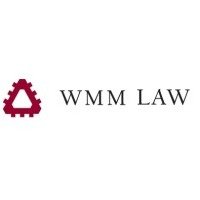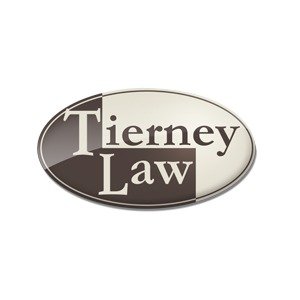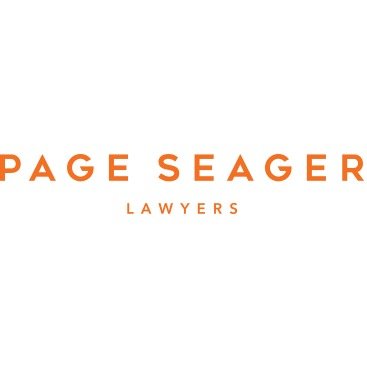Best Financial Services Regulation Lawyers in Hobart
Share your needs with us, get contacted by law firms.
Free. Takes 2 min.
List of the best lawyers in Hobart, Australia
About Financial Services Regulation Law in Hobart, Australia
Financial Services Regulation in Hobart, Australia, is governed by a comprehensive legal framework that ensures the stability and integrity of financial markets, securities, and investments. It is designed to protect consumers, maintain confidence in the financial system, and reduce systemic risk. The principal legislation includes the Australian Securities and Investments Commission Act 2001, the Corporations Act 2001, and other regulations enforced by the Australian Securities and Investments Commission (ASIC), which is the key regulator in this field.
Why You May Need a Lawyer
Engaging a lawyer specializing in Financial Services Regulation may be necessary if you are involved in activities such as providing financial advice, managing investments, or operating within financial markets. Common situations requiring legal assistance include compliance with licensing requirements, dealing with investigations or enforcement actions by regulatory bodies like ASIC, drafting or reviewing financial contracts, and navigating mergers, acquisitions, or corporate restructures within the financial sector. A lawyer can help ensure that your business operations adhere to Australian financial laws and regulations, minimizing risks and enhancing legal protection.
Local Laws Overview
Local financial services regulation laws in Hobart are in line with national standards set by Australian legislation. These laws encompass a broad range of activities, such as the regulation of financial advice, consumer credit, and disclosure obligations. Key aspects of these regulations include licensing requirements for financial service providers, ongoing compliance and reporting obligations, and specific conduct and disclosure obligations to protect consumers. Hobart businesses must also adhere to the Anti-Money Laundering and Counter-Terrorism Financing Act 2006, which helps prevent financial crimes.
Frequently Asked Questions
1. What is the role of ASIC in financial regulation?
The Australian Securities and Investments Commission (ASIC) is the primary regulator for financial services in Australia, including Hobart. It oversees market integrity, licenses financial service providers, and enforces compliance with corporate law and consumer protection.
2. Do I need a financial services license to provide investment advice?
Yes, you generally need to hold an Australian Financial Services (AFS) license to provide investment advice unless an exemption applies. This ensures that advice providers meet professional standards and obligations.
3. What are the main obligations for financial services license holders?
License holders must comply with various obligations such as ensuring financial and operational resources, maintaining compliance and risk management systems, and adhering to disclosure requirements.
4. What kind of legal issues might financial service entities face?
Common legal challenges include non-compliance with licensing conditions, breaches of market conduct regulations, disputes with clients or investors, and regulatory investigations or enforcement actions.
5. How can I report a financial scam or fraud?
You can report financial scams or fraud to ASIC via their website or contact them directly. They have measures in place to investigate and address such activities.
6. Can financial service providers be held liable for poor advice?
Yes, financial service providers can be held liable for advice that results in financial loss if it can be shown that they did not act in the client's best interests or breached legal obligations.
7. Are there specific regulations for fintech companies in Hobart?
Fintech companies are subject to the same financial services regulations as other entities, but there may be additional guidelines and frameworks to account for innovative business models and technology use.
8. What consumer protections exist in financial services?
Consumer protection is a key focus, with laws requiring clear disclosure, fair treatment, and recourse for consumers if providers fail to meet obligations.
9. What is the process for obtaining an AFS license?
To obtain an AFS license, you must submit an application to ASIC demonstrating your ability to comply with licensing conditions and legislative requirements.
10. How do I appeal a decision made by ASIC?
If you wish to appeal a decision made by ASIC, you can do so through the Administrative Appeals Tribunal, which provides an independent review of regulatory decisions.
Additional Resources
For individuals seeking further information or assistance, the following resources can be beneficial:
- ASIC's official website offers comprehensive guides and regulatory updates.
- The Financial Ombudsman Service can assist with disputes between consumers and financial service providers.
- Local legal aid services may offer preliminary advice and referral to specialized lawyers.
- The Consumer Action Law Centre provides resources and advice on consumer rights within financial services.
Next Steps
If you need legal assistance in Financial Services Regulation, consider the following steps:
- Identify the specific legal issue or requirement you need assistance with.
- Research and consult with a specialized lawyer or law firm that deals with financial services law in your local area.
- Prepare all relevant documents and information to facilitate a thorough legal review.
- Discuss your legal rights, obligations, and options with your lawyer to determine the best course of action.
With the right legal support, you can effectively navigate the complexities of financial services legislation and ensure compliance with Australian laws.
Lawzana helps you find the best lawyers and law firms in Hobart through a curated and pre-screened list of qualified legal professionals. Our platform offers rankings and detailed profiles of attorneys and law firms, allowing you to compare based on practice areas, including Financial Services Regulation, experience, and client feedback.
Each profile includes a description of the firm's areas of practice, client reviews, team members and partners, year of establishment, spoken languages, office locations, contact information, social media presence, and any published articles or resources. Most firms on our platform speak English and are experienced in both local and international legal matters.
Get a quote from top-rated law firms in Hobart, Australia — quickly, securely, and without unnecessary hassle.
Disclaimer:
The information provided on this page is for general informational purposes only and does not constitute legal advice. While we strive to ensure the accuracy and relevance of the content, legal information may change over time, and interpretations of the law can vary. You should always consult with a qualified legal professional for advice specific to your situation.
We disclaim all liability for actions taken or not taken based on the content of this page. If you believe any information is incorrect or outdated, please contact us, and we will review and update it where appropriate.

















